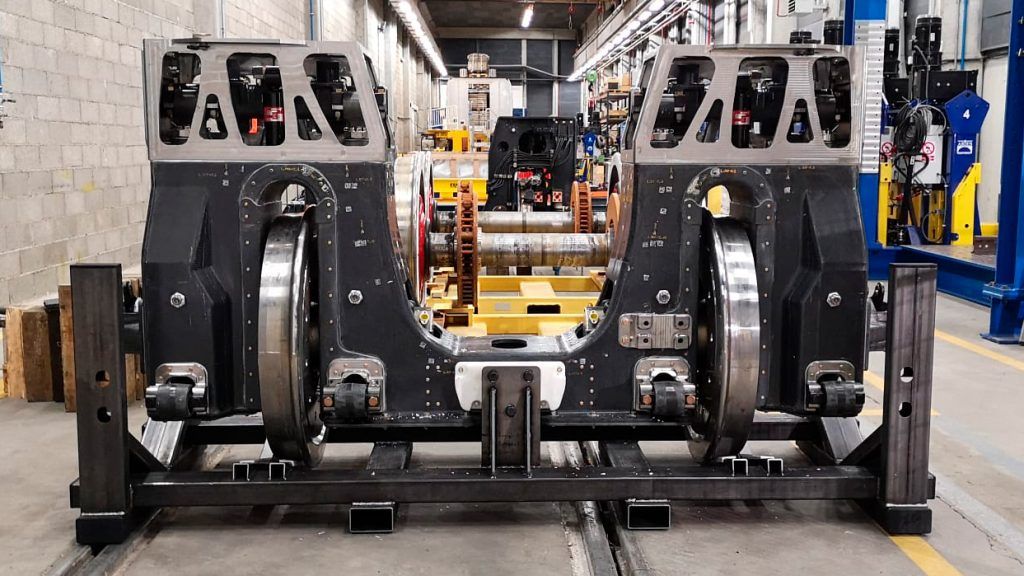Viktor Orbán’s shadow over the Spanish Talgo workers. Talgo’s sale is influenced by union fears of redundancies if the manufacturer is bought by Hungarians, but also by the bad image of a country ruled by an anti-EU and pro-Moscow leader.

“A country like Hungary”. The phrase was recently used by Spanish unions at Talgo to nominate the country from which the future buyer of the Spanish giant might come.
One of the points that Talgo unions, in this case the UGT, have repeatedly raised is the risk that the takeover bid by the Hungarian group Magyar Vagon will have an effect on the jobs of workers in the Spanish company’s factories, and although Magyar Vagon promises to keep production in the country for the time being, the future may change, according to Spanish publication merca2.es.
The Hungarians may resort to relocating production to the country presided over by Viktor Orban as a way of securing delivery capacity, a key point if Talgo is to fulfil its backlog of orders.
Indeed, doubling its production capacity to 600 vehicles a year, promised by the Hungarians in their takeover bid, would quickly solve Talgo’s production problem. The Spanish company not only owes debts – backorders – to Renfe, but also to Germany and Bulgaria. Its problem is that, with current capacity, it will be complicated to overcome this situation, especially if the manufacturer continues to conclude contracts that increase the number of trains awaiting delivery.
But if some of this production is done in Hungary, in idle factories owned by Magyar Vagon, it would give the unions a fair shake, as it is easy to imagine from there jumping to a country run by a figure like Viktor Orbán, concentrating Talgo’s production, which could be a problem sooner or later, notes the Spanish newspaper.
The trade unions, without further ado, sent a very clear message to the company: “UGT FICA is asking for information about the conditions of the acquisition by Ganz-Mavag so that it can take the action it considers necessary to guarantee the rights of Talgo workers,” the union said.
This is far from the only concern about the takeover. Talgo’s patents, which are essential for the variable gauge wagons needed for the national train system, and the company’s expertise may be essential for a growing high-speed system, especially for routes like Galicia, where new entrants to the “train game” rely on Talgo models to bring competition to the north of the country.
These are reasons enough to keep the manufacturer under Spanish control, or at least to keep it out of a country like Hungary. This has been understood by the government, which is opposed to the Hungarians taking control of Talgo, the publication claims.
Talgo’s workforce, according to 2023 data, is around 3,200. According to the company’s statement, they will not move the company’s Spanish activities or delist the company to Spain. This might at first soothe union spirits, but the UGT and CC OO continue to stress that there has been no attempt by the buyers to approach workers in Spain.
“The trade union section of UGT FICA has formally requested Talgo management to convene a meeting with the Intercentre Committee as soon as possible, preferably this week, and at this meeting the management should present the workers’ representatives with the full contents of the takeover offer prospectus, explaining its contents and each of its headings,” they said. On paper, the Hungarian company is not obliged to share the prospectus until it becomes binding.
Trade unionist: ‘State as insecure as Orban’s Hungary’
For his part, CC OO general secretary Unai Sordo urged the government to prevent strategic sectors for Spain from falling into the hands of foreign capital. Referring to Magyar Vagon’s takeover bid for Talgo, he called for “caution and prudence” as it comes from a “state as insecure as Orbán’s Hungary”.
What is certain is that the proximity of one of Magyar Vagon’s investors, András Tombor, to Orbán’s government, whose defence adviser he was during his first term in office, is enough to make us believe that the owners will apply the “Hungary first” policy with their new acquisition, affecting jobs in Spain. Beyond the initial promises, this is a risk that needs to be considered, even if one ignores the possible relationship between Hungary and Russia and the subsequent dangers it poses.
Share on:



